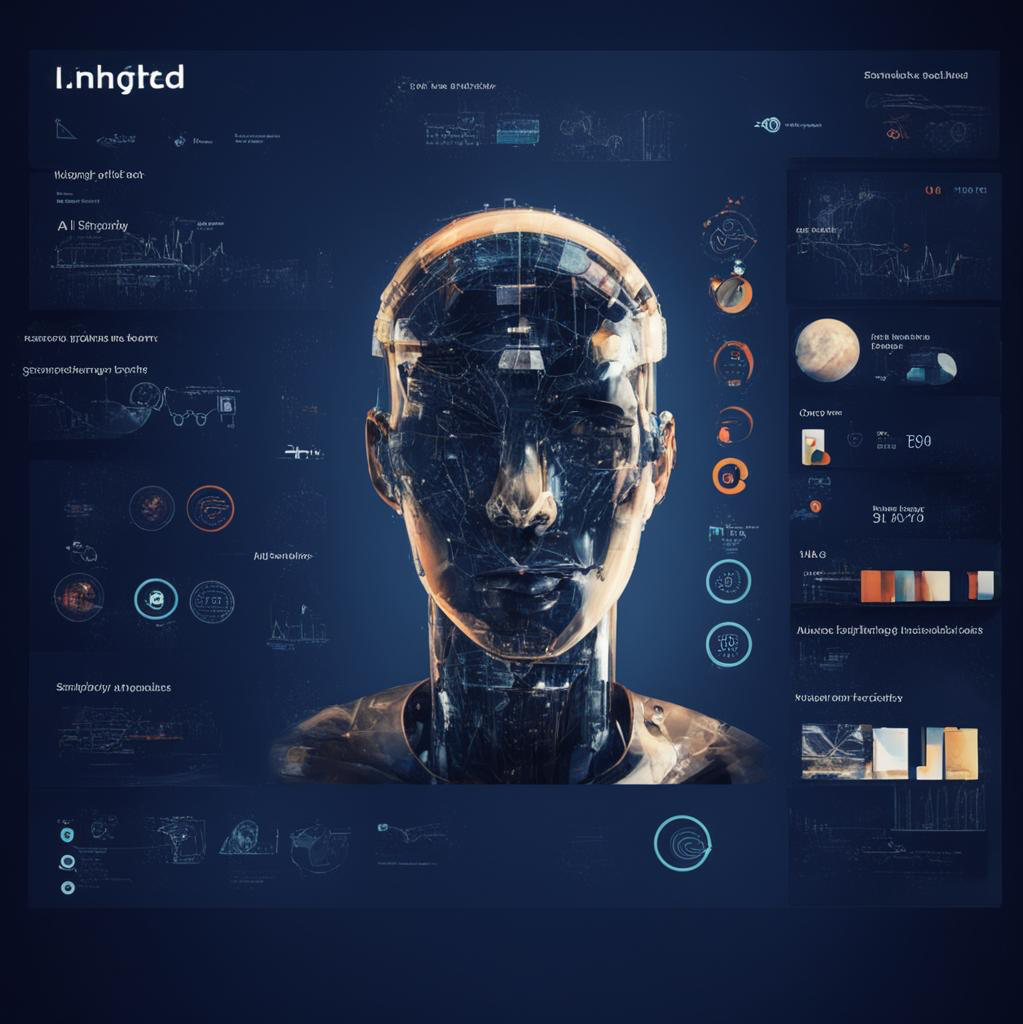
Welcome to the future of sports scheduling! Gone are the days of tedious manual labor and endless hours spent trying to create fair and efficient game schedules. Thanks to advancements in Artificial Intelligence (AI) optimization, sports organizations around the world are now able to streamline their scheduling processes, save time, and enhance overall competitiveness.
In this blog post, we will explore how AI is revolutionizing sports scheduling, uncover its advantages and challenges, examine successful implementation examples, delve into ethical considerations, discuss future possibilities and implications – all while keeping you engaged with our captivating content. So sit back, grab your favorite jersey, and let’s dive into the exciting world of AI optimization in sports scheduling!
Advantages of AI Optimization in Sports Scheduling
AI optimization brings a multitude of advantages when it comes to sports scheduling. One major benefit is its ability to consider multiple constraints and factors simultaneously. It can take into account team preferences, venue availability, travel distances, player rest days, and even fan attendance patterns. By analyzing these variables comprehensively, AI optimization ensures that schedules are fair and balanced for all parties involved.
Another advantage is the efficiency AI brings to the scheduling process. Traditionally, creating schedules manually can be time-consuming and prone to human error. With AI optimization algorithms in place, this tedious task becomes automated and streamlined. This not only saves precious time but also reduces the likelihood of mistakes or oversights.
AI’s predictive capabilities play a crucial role in sports scheduling. By analyzing historical data and identifying trends, it can forecast potential conflicts or issues before they arise. This proactive approach allows organizers to address challenges ahead of time and make necessary adjustments without disrupting the overall schedule.
AI optimization promotes transparency in sports scheduling decisions. The algorithms used provide clear justifications for each decision made based on specific criteria programmed into them. This transparency helps build trust among stakeholders by demonstrating fairness and impartiality in determining game dates and locations.
With its computational power, AI has the capacity to generate countless schedule iterations within seconds or minutes – something humans would struggle with due to limitations on time and resources. This flexibility enables organizers to explore various scenarios quickly while finding solutions that best fit their needs.
The advantages provided by AI optimization in sports scheduling are manifold: considering multiple constraints simultaneously, increasing efficiency through automation; leveraging predictive capabilities; promoting transparency; offering flexibility for exploring options rapidly.

Examples of Successful Implementation
One prime example of successful implementation of AI optimization in sports scheduling can be seen in the National Basketball Association (NBA). With a grueling 82-game regular season, organizing and coordinating games across multiple teams, venues, and television networks is no small feat. In 2018, the NBA partnered with a technology company to develop an AI-powered scheduling system.
Using vast amounts of data such as team availability, venue availability, travel distances, rivalries, and TV broadcast requirements; the AI algorithm was able to generate schedules that maximized fairness and minimized logistical challenges. The result? A more balanced schedule with reduced instances of back-to-back games or long road trips for teams.
Another noteworthy example comes from Major League Baseball (MLB). With each team playing 162 games per season spread over six months, creating an optimized schedule is a complex task. However, by utilizing AI algorithms that consider factors like stadium availability, desired matchups between rivals or star players on certain dates or holidays; MLB has been able to generate schedules that cater to both fans’ preferences and practical concerns.
In addition to professional leagues, college sports have also embraced AI optimization in their scheduling processes. For instance, the NCAA uses advanced algorithms to create fair schedules for conferences with uneven numbers of teams or specific constraints related to academic calendars or regional rivalries.
These examples demonstrate how incorporating AI optimization into sports scheduling can yield impressive results. By leveraging sophisticated algorithms and analyzing extensive datasets in real-time decision-making processes; organizations can achieve greater efficiency and improved outcomes when it comes to organizing sporting events.
Challenges and Limitations of AI in Sports Scheduling
While AI optimization has shown great promise in revolutionizing sports scheduling, it is not without its challenges and limitations. One major challenge is the sheer complexity of scheduling multiple teams across different leagues, with various constraints such as venue availability, travel distances, and team preferences.
Another limitation is the reliance on accurate data input for optimal results. Any inconsistencies or errors in the data can lead to inaccurate scheduling decisions. Additionally, AI algorithms may struggle to account for unforeseen events or last-minute changes that can disrupt the schedule.
There are ethical considerations when using AI in sports scheduling. The use of algorithms could potentially favor certain teams or leagues over others if not carefully regulated. This raises questions about fairness and transparency within the sporting community.
Implementing an AI system requires significant investment in terms of technology infrastructure and expertise. Small organizations or lower-tier leagues may not have access to these resources, which limits their ability to harness the benefits of AI optimization.
Despite these challenges and limitations, continuous advancements in AI technology offer opportunities for improvement. As researchers refine existing algorithms and develop new models specifically tailored for sports scheduling, we can expect more effective solutions that address these limitations.
AI optimization holds immense potential but also faces hurdles along its path towards transforming sports scheduling processes. By addressing challenges related to complexity, data accuracy, unforeseen events, ethics considerations,and accessibility issues; stakeholders can work towards maximizing the benefits offered by this cutting-edge technology while ensuring fairness and transparency within sport competitions.
Ethical Considerations
When it comes to implementing AI optimization in sports scheduling, there are several ethical considerations that need to be carefully examined. One of the key concerns is fairness and equality. While AI can help create more balanced schedules by considering various factors, such as team strength and venue availability, there is a risk of unintentionally favoring certain teams or leagues.
Another ethical consideration is transparency. Sports fans have a right to know how scheduling decisions are made and whether any biases or preferences influenced the process. Therefore, organizations using AI for sports scheduling must ensure they provide clear explanations and justifications for their decisions.
Privacy is also a crucial aspect to address when utilizing AI optimization in sports scheduling. Collecting vast amounts of data on players, teams, and venues raises concerns about how this information will be stored, used, and protected from unauthorized access or misuse.
There may be moral implications surrounding potential job displacement due to automation through AI optimization. If tasks previously performed by humans are now executed by algorithms, it could result in job loss for individuals involved in manual scheduling processes.
As with any technology implementation involving artificial intelligence systems, the issue of accountability arises. Who should be held responsible if errors occur? Should it be the developers who created the algorithm or the organization that chose to implement it?
Addressing these ethical considerations requires careful thought and collaboration between stakeholders including sports organizations, governing bodies, players’ unions, fans’ associations and even regulatory authorities.
Future Possibilities and Implications
As AI optimization continues to evolve, the future of sports scheduling holds immense potential. With advancements in technology, we can expect even more efficient and precise algorithms to be developed. This means that schedules will not only be optimized for fairness and competitiveness but also for factors such as travel distances, player fatigue, and fan engagement.
One exciting possibility is the integration of real-time data into scheduling algorithms. By considering up-to-the-minute information like weather conditions or injury reports, AI could dynamically adjust game times or locations to ensure optimal conditions for players and fans alike.
Another area with great potential is customization. Imagine a future where fans have the ability to personalize their own schedules based on their favorite teams or preferred match-ups. AI could analyze individual preferences and create tailored schedules that maximize enjoyment for each fan.
AI optimization may also lead to greater diversity in sports scheduling formats. Traditional leagues often follow fixed calendars with predefined match-ups year after year. However, with AI’s ability to quickly generate countless possibilities, there is room for experimentation with new tournament structures or rotating opponents.
While there are still challenges ahead, it’s clear that AI optimization has a bright future in revolutionizing sports scheduling. As technology continues to advance and ethical considerations are taken seriously, we can look forward to fairer schedules that enhance player performance, improve fan experiences, and unlock new possibilities in how sporting events are organized.
Conclusion
The future of sports scheduling is undoubtedly being revolutionized by AI optimization. The ability to efficiently and effectively generate schedules that meet various constraints and objectives is invaluable for tournament organizers, broadcasters, teams, and fans alike.
AI optimization in sports scheduling offers numerous advantages. It can save time and resources by automating the process and reducing the need for manual intervention. By considering multiple factors simultaneously, such as venue availability, team preferences, travel distances, and broadcast requirements, AI algorithms can create fairer schedules that minimize conflicts and maximize overall satisfaction.
AI optimization has shown immense promise in transforming how sporting events are scheduled worldwide. Its ability to consider multiple variables simultaneously while minimizing conflicts provides tremendous benefits for stakeholders involved at every level of competition – from professional leagues down to local tournaments.
As we move forward into an era where data-driven decision making becomes increasingly prevalent across industries – including the realm of sport – it’s clear that AI will continue playing a pivotal role in shaping the future of sports scheduling.

